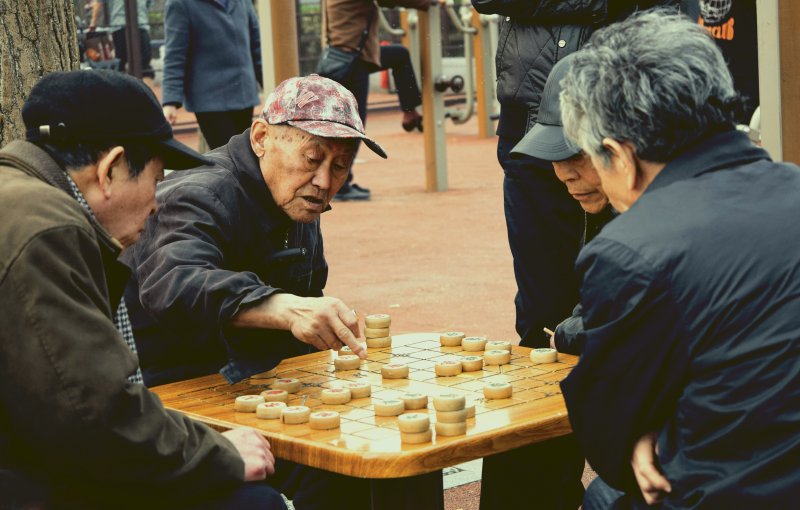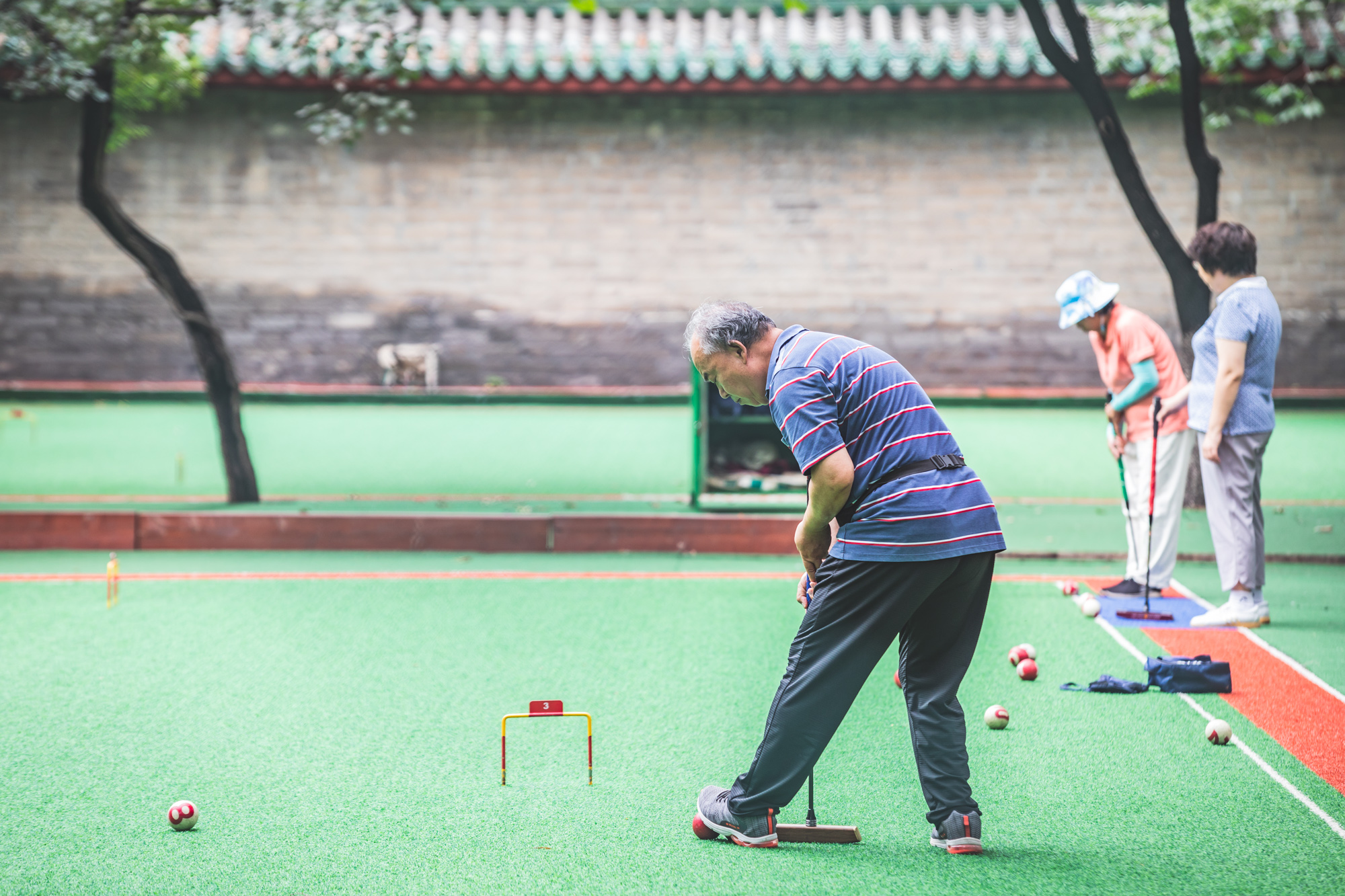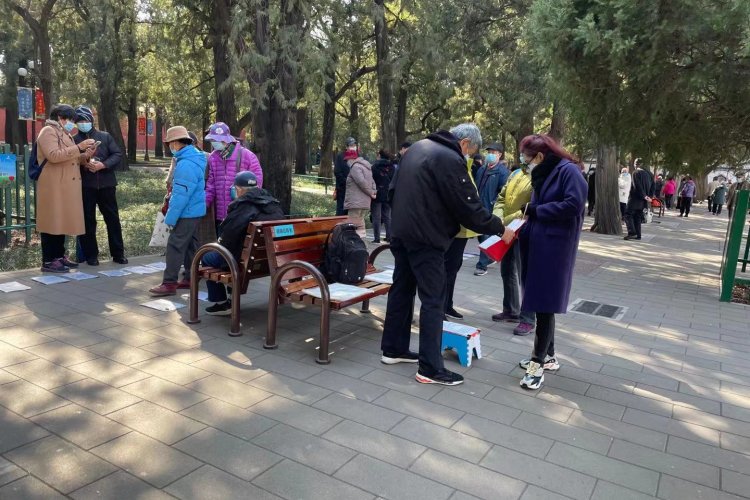How Beijing's Older Generation Reclaims Public Space
At six in the morning, before the city's espresso machines begin their daily hum, Beijing's parks and sidewalks are already alive with rhythm: the soft swoosh of tai chi sleeves, the clipped steps of brisk walkers, and the static buzz of a portable radio blaring revolutionary songs. The sun has yet to rise above the tiled roofs of the hutongs, but the older generation is already there, moving through the streets with quiet assurance, carrying fans and birdcages.

For them, public space is not a neutral backdrop. It is a familiar stage where routine, memory, and community converge. In a city constantly shifting, where noodle stalls become boutiques overnight and sidewalks are reshaped by e-bike delivery routes, retirees find stability in repetition. They return to the same corners, lay out folding chairs beneath the same trees, and claim ground, not with protest but with presence.
Under the shade of a locust tree, two men lean over a worn wooden board, their eyes fixed on the red and black pieces of chinese chess (象棋 xiàngqí). Each move is accompanied by the sharp click of wood meeting wood, a sound that draws spectators from nearby benches. No one asks to join the circle; they simply appear, drawn by habit and the unspoken invitation of concentration. There is always commentary. Soft-spoken strategies, teasing insults, and the knowing chuckle of someone who predicted a move before it happened. These games are more than a competition. They are conversation in another form, a rhythm of connection shaped over decades.

A few meters away, another ritual unfolds. Men arrive with birdcages wrapped in embroidered cloth. With quiet care, they uncover the cages and hang them from low branches, creating a floating choir of thrushes and larks. The birds stretch their wings and trill into the morning air, while their owners pour tea, lean back, and either talk softly or remain completely silent. Here, companionship does not require words. The birds sing for them, and that is enough.
As the day lengthens, the tempo shifts. Mahjong tables appear on roadside platforms and near market entrances. Players squat on low stools, faces shaded by wide-brimmed hats or faded towels wrapped like turbans. The tiles slap against the table in a rhythm all their own. Around them, others gather not just to watch but to offer commentary, crack jokes, or discuss the trivial dramas of daily life. The topics meander: celery prices, medicine side effects, the latest soap opera, or whether a grandson's girlfriend is “too skinny to last the winter.” Victory, when it comes, is met with little more than a smug grin and a muttered “not bad today.” It is not about money. It is about rhythm, about showing up.

Every movement has its choreography. Some arrive with stools strapped to their bicycles, others push shopping carts loaded with speakers and water flasks. A woman might unfold her silk fan and begin dancing to a pop remix of a classic ballad, eyes closed, arms outstretched, moving as if she belongs entirely to the moment. By late morning, they begin to leave, giving way to the younger crowds rushing to work. The park empties, but the warmth lingers in the air like the echo of a favorite song.
In an age where public space is increasingly shaped by commerce, where access is often limited by signs or tickets, the quiet occupation of Beijing's elders feels gently defiant. They are not consumers of space. They are caretakers. Their presence reminds us that the city belongs not only to the fast and the young, but also to those who know how to slow time, how to listen, and how to simply be.
There is nothing nostalgic about it. There is only continuity folded into a fan, clicked into a chessboard, rising like birdsong above the roar of a waking city.
READ: Day & Night Around Xixinglong Jie
Images: Uni You, Unsplash







